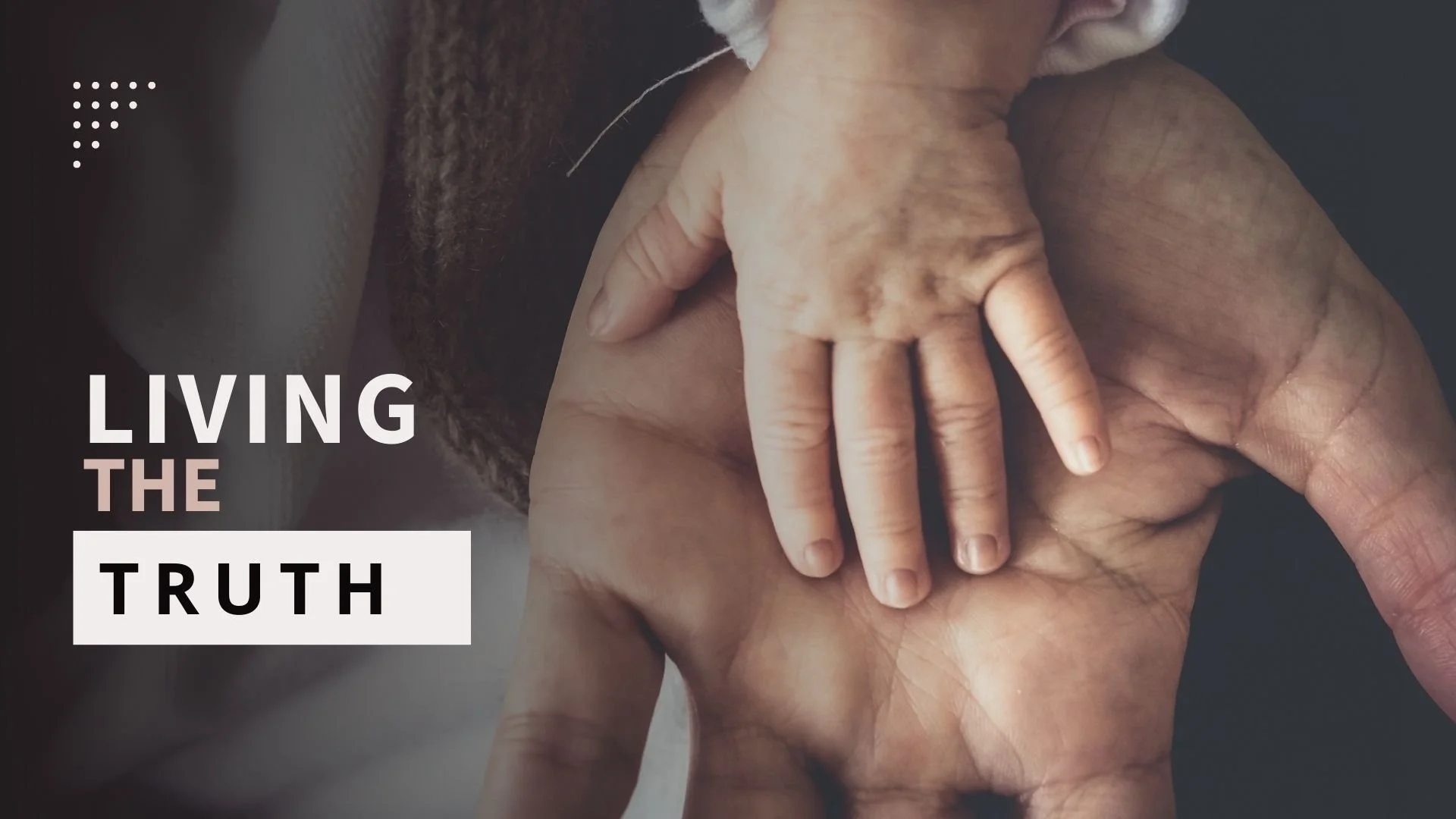Love Your Neighbor
I strongly believe that prayer, Bible study, and relationships, are the key to spiritual growth. This post will focus on relationships. But just to be clear, I will not be addressing romantic relationships but rather all relationships in general. This is a post about how we relate to others as followers of God.
One day Jesus is asked an interesting question by one of the scribes. (The term scribe in early OT times refers to those employed for their ability to transcribe information. After the exile, scribes are a class of scholars who teach, copy, and interpret the Jewish Law for the people. They appear in the Gospels primarily as opponents of Jesus. - Elwell, W. A., & Beitzel, B. J. (1988). Scribe. In Baker encyclopedia of the Bible (Vol. 2, p. 1913). Baker Book House).
Then one of the scribes came, and having heard them reasoning together, perceiving that He had answered them well, asked Him, “Which is the first commandment of all?”
- Mark 12:28 NKJV
Just to clarify the question, the scribe was not asking Jesus for the earliest commandment but rather the foremost, the most important, the top commandment. The way I understand the question it is the equivalent of asking Jesus to rank the commandments, which one comes out at the top, the primary, the most important when compared to all the others. If I was the one asking the question, I would have probably said, what is the one rule I should live life by?
Jesus answered him, “The first of all the commandments is: ‘Hear, O Israel, the Lord our God, the Lord is one. And you shall love the Lord your God with all your heart, with all your soul, with all your mind, and with all your strength.’ This is the first commandment. And the second, like it, is this: ‘You shall love your neighbor as yourself.’ There is no other commandment greater than these.”
- Mark 12:29-31 NKJV
Jesus is not creating new commandments, rather He is quoting from the Old Testament, from Deuteronomy 6:4-5 and Leviticus 19:18. I say this because one day I had a gentleman arguing with me that with this statement Jesus was doing away with all other commandments and the entire Old Testament and that from now on we only have two commandments. I see this rather differently. I see Jesus distilling the essence of all the law, summarizing it, highlighting the key value that can be noticed throughout the law and the entire Old Testament.
If all we needed was a law the Bible could be a lot thinner. But we have stories that play out and portray and teach us how these laws can be applied as well as what can happen when these laws and principles are ignored.
For example, when we look at the 10 commandments written in stone by the finger of God as recorded in Exodus 20:1-17 the first four commandments are all about our relationship with God.
You shall have no other Gods.
You shall not make an image to bow down to it.
You shall not take the name of God in vain.
Remember the Sabbath day to keep it holy.
The fourth commandment begins to bridge our relationship with God and that with each other. The next six commandments have to do with our relationships with one another.
5. Honor your father and mother.
6. You shall not murder.
7. You shall not commit adultery.
8. You shall not steal
9. You shall not bear false witness.
10. You shall not covet.
The way I see it, the words of Jesus did not do away with these commandments, rather He identified the underlying principle that guides the keeping of these commandments. If I love God above all else, I will not have other gods, I won’t worship any images (because He asks me not to), I won’t take His name in vain, and I will gladly remember to keep the Sabbath holy. If I love my neighbor as myself I will honor my parents (they also classify as neighbors), I will not murder, commit adultery, steal, lie, or covet something that belongs to my neighbor.
The same principle can be applied to all the other Old Testament laws. The laws serve to give clarity on how to best serve God and relate to my neighbors. I know that there are some weird laws in the Old Testament that deal with different aspects of life and some are really difficult to understand, but according to Jesus, they are all about loving God above all and our neighbor as ourselves.
The scribe liked Jesus’ answer, and to me, this is a sign that the scribe who asked this question was not trying to trap Jesus but rather honestly wanted to better understand the word of God and how to live a good/moral life.
So the scribe said to Him, “Well said, Teacher. You have spoken the truth, for there is one God, and there is no other but He. And to love Him with all the heart, with all the understanding, with all the soul, and with all the strength, and to love one’s neighbor as oneself, is more than all the whole burnt offerings and sacrifices.”
Now when Jesus saw that he answered wisely, He said to him, “You are not far from the kingdom of God.”
But after that no one dared question Him.
- Mark 12:32-34 NKJV
When I think about the principles of a strong and growing spiritual life I think about Prayer and Bible Study which connect us to God and Relationships which is how we put what we learned into practice. Prayer and Bible study that do not affect our relationships are of no value.
But what kind of relationships should we be concerned about? Should we only be concerned about our romantic relationships? Or only the relationships within our family? Maybe within our faith community? There’s another story in the Bible that helps clarify who Jesus had in mind when He said we ought to love our neighbor as ourselves.
And behold, a certain lawyer stood up and tested Him, saying, “Teacher, what shall I do to inherit eternal life?”
He said to him, “What is written in the law? What is your reading of it?”
So he answered and said, “ ‘You shall love the Lord your God with all your heart, with all your soul, with all your strength, and with all your mind,’ and ‘your neighbor as yourself.’ ”
And He said to him, “You have answered rightly; do this and you will live.”
- Luke 10:25-28 NKJV
“Luke refers to the scribes as “lawyers,” describing their chief function as interpreters of the Jewish Law in a way readily comprehensible to his gentile audience.” (Elwell, W. A., & Beitzel, B. J. (1988). Scribe. In Baker encyclopedia of the Bible (Vol. 2, p. 1914). Baker Book House.)
In this story, we have a scribe, or lawyer, or expert in the law, attempt to test Jesus. From this introduction, we learn that this man is not necessarily sincerely seeking God but rather trying to play games with the law. Jesus essentially points him to the law and asks his interpretation. The lawyer has the correct interpretation. Jesus congratulates him and leaves it at that. However, the lawyer’s conscience is now bothering him. The lawyer is not at peace not because he does not understand what God asks of Him, but because He is not willing to do it.
We never behave like that right? We never nitpick at the Bible trying to quiet our conscience for not doing what we know God requires of us. We try to discredit God, the Bible, religion, we desperately try to quiet our conscience. God’s requirements in a broad sense are the same to all, but the practical applications, the details, change from person to person. We are all called to love our neighbor as ourselves, but what is the loving thing to do changes from person to person, according to your stage in life, your giftedness, your abilities, your experience, etc. but we are all called to love.
But he, wanting to justify himself, said to Jesus, “And who is my neighbor?”
- Luke 10:29 NKJV (bold mine)
The lawyer knew he was not being loving, but he was hoping that those he was not being loving towards did not classify as his neighbors.
Then Jesus answered and said: “A certain man went down from Jerusalem to Jericho, and fell among thieves, who stripped him of his clothing, wounded him, and departed, leaving him half dead. Now by chance a certain priest came down that road. And when he saw him, he passed by on the other side. Likewise a Levite, when he arrived at the place, came and looked, and passed by on the other side. But a certain Samaritan, as he journeyed, came where he was. And when he saw him, he had compassion. So he went to him and bandaged his wounds, pouring on oil and wine; and he set him on his own animal, brought him to an inn, and took care of him. On the next day, when he departed, he took out two denarii, gave them to the innkeeper, and said to him, ‘Take care of him; and whatever more you spend, when I come again, I will repay you.’ So which of these three do you think was neighbor to him who fell among the thieves?”
And he said, “He who showed mercy on him.”
Then Jesus said to him, “Go and do likewise.”
- Luke 10:30-37 NKJV
The Samaritans were a “schismatic monotheistic group similar in theology to the Jews. The group resided north of Judea and south of Galilee in hostile tension with its Jewish neighbors. Jesus’ attitude toward this despised group radically contrasted with contemporary sentiment.” (Elwell, W. A., & Beitzel, B. J. (1988). Samaritans. In Baker encyclopedia of the Bible (Vol. 2, p. 1886). Baker Book House.) There was animosity between the Samaritans and the Jews in Jesus’ day. Notice how the lawyer does not even want to say the word. Yet in this story, Jesus takes someone who would be considered an enemy and makes him the hero of the story.
Have you ever noticed how in war the other group is always dehumanized, they are presented as less than, as caricatures, as subhuman… my understanding is that we do this to justify our feelings, thoughts, and actions towards them, lest we realize how similar they are to us, needing love and mercy, forgiveness and kindness just as much as we do.
I have been blessed to have ministered among diverse groups and congregations for the bulk of my experience in the United States.
Throughout my teen years, I attended a predominantly Cape Verdian church. We all spoke Portuguese and had members from Africa, South America, Europe, and North America. We each came from a different place and had slightly different views regarding many aspects of worship, music style, dress, and social interactions. Some things that were fine in one culture were offensive in another culture. Theological points were applied differently. It was a challenging and wonderful experience. Nothing except our love for Jesus could have kept that church together, and it grew and continues to grow in Brockton Massachusetts.
From there I attended Southern Adventist University and found myself surrounded by a very diverse group of friends from all over the world, and once again our love for Jesus and passion for ministry united us.
When I graduated with my theology degree I was called by the Texas Conference to be the associate pastor at the Weslaco Seventh-day Adventist Church located in the Rio Grande Valley, right on the border with Mexico. We had members from all over the world and there was not a clear majority from any race. We had Philipinos, Mexicans, Koreans, Bengali, Canadians, Americans, Indians, Brazilians, Japanese, Vietnamese, Ghanans, Haitians, Jamaicans… I felt right at home. Everyone had an accent, so they barely noticed mine.
I worked in the valley for about 8 years broken up by two-and-a-half years I spent at Andrews working on my Master of Divinity degree. While at Andrews I had more Brazilian friends and was more exposed to Brazilian culture than I had ever been since moving to the US. That experience helped me realize that I was not very Brazilian, I had changed after living here for so many years. It didn’t matter where I went I never fit in completely. I was too Americanized to completely fit in with the Brazilians, and yet I was too Brazilian to completely fit in with the Americans.
During this time I was involved with a church in Paw Paw Michigan. This was the first predominantly anglo church I had ever worked with. God knew I needed this experience because it helped break many of the misconceptions I had regarding anglos. Just like working in Brownsville, San Benito, and Edinburg in the Rio Grande Valley in the southern tip of Texas helped correct many incorrect views I had regarding Hispanics and Asians.
Most recently I pastored the Park Avenue Seventh-day Adventist church in Valdosta, Georgia. There I was also a volunteer police chaplain and a volunteer chaplain for the hospital. During all that happened regarding COVID and the racial tensions especially involving the police, I was there. I was receiving updates from our local hospital, meeting with our chief of police, and meeting with the community and pastors from different denominations.
I was in a place where I was able to have conversations with people on different sides of many of these hot issues.
Most recently, I spent the Christmas and New Year’s holidays in Massachusetts. Massachusetts is quite different from where I have lived and worked since I graduated high school. Massachusetts is quite different from Texas, Georgia, and from what I have experienced of life here in Idaho. I had the opportunity to sit and talk with people I respect and admire that have different views than the ones I am usually exposed to. I got to listen to their arguments, to have their reasoning explained to me.
Each time I find myself listening to someone who has a different political, theological and cultural view I find myself being able to relate to many of the sentiments that drive their actions and decisions. They want to do what they believe is best. They want to do what they believe is right. and I believe that by intentionally listening and asking questions and politely answering we can realize we have so much in common, and that makes it easier, I believe to navigate our differences. I always learn from these experiences and I strongly believe they are the way forward.
These experiences shaped me and my attitude. I can never stand by as immigrants make comments about “those Americans” the same as I can’t just keep quiet when I hear comments about “those Hispanics” or “those immigrants” or those members of that political party or those Yankees up north or those backward southerners. I say this because I have visited them in their homes. I have shared meals with them. I have teared up at spicy food that they assured me was mild. I have attended their birthdays and quinceñeras, officiated weddings and funerals, and done baby dedications. I have noticed the cultural differences and how our love for God can unite us. But first, we have to stop seeing each other as “other” and we should rather see each other as “neighbors”. And care and love each other as if our salvation depended on it.
Our neighbors are not merely our associates and special friends, they are not simply those who belong to our church, or who think as we do. Our neighbors are the whole human family. We are to do good to all men, and especially to those who are of the household of faith.
-The Review and Herald, January 1, 1895
My challenge for you this week is to look for ways to bless those around you while asking God what He would have you do. What is God calling you to do for the benefit of your neighbor that will bring honor and glory to His name?
If you wish to grow spiritually, if you want this year to be better than last year, then I strongly encourage you to become intentional about your relationships. Look for ways to serve. Look for ways to help. Join a ministry here at our church, but beyond that, be intentional about demonstrating God’s love towards all, especially towards those you think deserve it the least.
We are to care for every case of suffering, and to look upon ourselves as God’s agents to relieve the needy to the very uttermost of our ability. We are to be laborers together with God.
- The Review and Herald, January 1, 1895.








